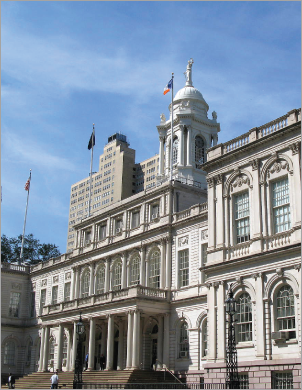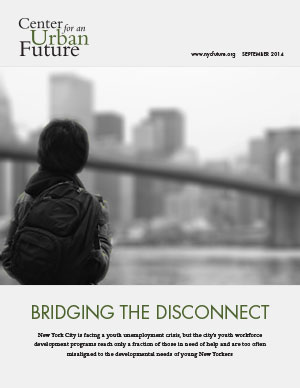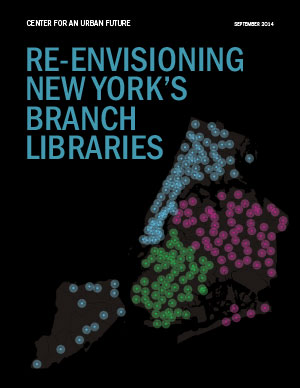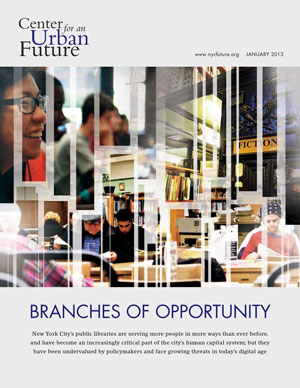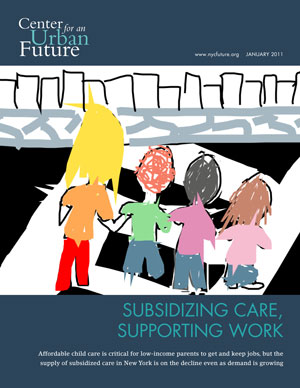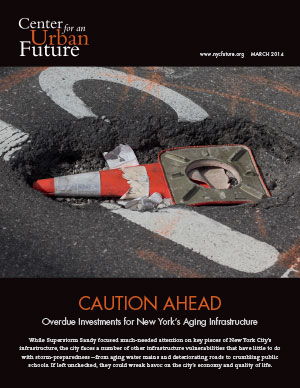Earlier this week, the City Council issued its response to Mayor de Blasio's preliminary budget. We are heartened that many of the proposals outlined in the response—from opening libraries six days a week to creating a year-round youth employment program—follow a number of our reports' recommendations.
-
Our Branches of Opportunity report recommended that the city significantly increase the budgets of city libraries so that branch libraries across the city could extend their hours of service to at least 50 hours a week. In their Budget Response this week, the Council called for a $65 million increase in city library funding—a restoration to 2008 levels—so that libraries can "provide six-day service, extend hours of operation per week and increase education programs."
-
Our Re-Envisioning New York's Branch Libraries study revealed that a significant share of the city's library branches suffer from major physical defects, identifying $1.1 billion in capital needs to bring the branches into a state of good repair. We urged the city to create and finance a capital plan to bring the city's libraries into the 21st century. The Council's Response follows our recommendation, calling on the administration to “provide adequate and continual capital funding to help maintain and revitalize these critical institutions.”
-
Our Caution Ahead report shined a light on New York City’s aging infrastructure. Among the report's recommendations, we urged the city to increase funding for road resurfacing given the deterioration of street conditions: in 2013, 30.4 percent of the city’s roads received a “fair” or “poor” rating, up from 15.7 percent in 2000. The Council's Response urges the administration to increase baseline funding for street resurfacing citywide by $103.4 million.
-
Our Bridging the Disconnect report highlighted the need to expand and improve the city’s youth workforce development system. We recommended that the city expand programs that provide high-quality work experience and intensive training over a longer period than offered by the Summer Youth Employment Program (SYEP), and profiled Boston's summer internship program as a best practice, noting that participants receive a full academic year of training before stepping onto the worksite. The City Council is now proposing that the city allocate $17.3 million toward developing a full-year youth employment program.
-
Bridging the Disconnect also bemoaned the sharp decline in enrollment levels for SYEP at a time of increasing demand. The City Council is now proposing to allocate an additional $19.9 million to the Department of Youth and Community Development's budget to expand the number of SYEP slots and create more summer jobs for NYC youth.
-
Our Subsidizing Care, Supporting Work report revealed that the supply of subsidized child care in New York has slipped in recent years even as affordable child care has become increasingly critical for low-income parents to get and hold jobs or complete a postsecondary degree. We urged the city to stabilize child care access in low-income neighborhoods. The Council's Response calls for $17 million in baseline funding for Priority 5 child care vouchers—a support for families where parents work at least 20 hours per week but still struggle to afford child care and for families with children who have special needs.
